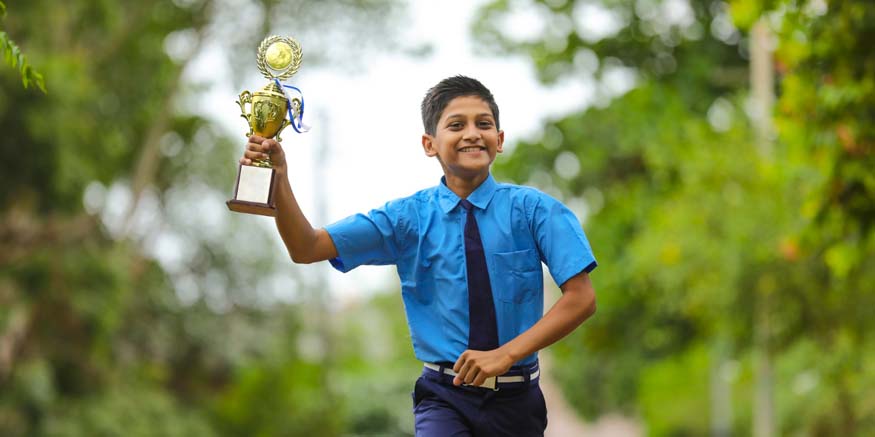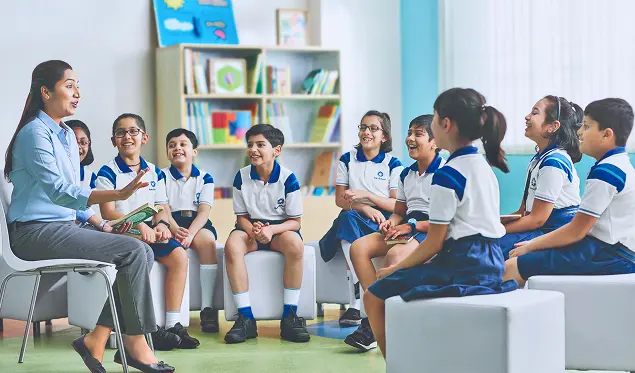Life skills are the proficiency in a diverse set of abilities needed to thrive in different aspects of life. While not specific to any particular sphere or field of knowledge there is applicability across various areas like personal development, academic success or career achievements along with effective social interaction. The learning proficiency provided by the acquisition of these skill sets offers an individual the capability to manage oneself efficiently as well as collaboratively communicate with others while solving complex issues accompanied by consistently good-decision making capability.
Some important life skills for kids to acquire
In today’s ever-changing world where independence is prized above all else; instilling important life skills and personal development skills early on in children has become more critical than ever before. This involves offering young minds structured exposure necessary for them to make effective decisions that promote personal growth. With guidance and support, children learn essential skills such as decision-making, communication and leadership crucial to navigate the world beyond childhood effectively.
As parents or caregivers, we have a critical role in nurturing these important life skills and personal development skills by providing safe opportunities for practice and application. Encourage your child’s independence through age-appropriate choices while shaping their self-awareness towards becoming well-rounded individuals that can thrive in any situation.
- Communication Skills – Having the ability to communicate effectively is fundamental for conveying thoughts, feelings, and needs appropriately. Consequently, it is paramount that young children learn vital communication skills such as active listening which is essential for comprehension, articulation necessary for coherent expression, nonverbal cues, helpful in conveying emotions clearly, and constructively engaging in respectful exchanges crucial for healthy relationships.
- Emotional Intelligence – In modern-day living, the importance of possessing emotional intelligence skills cannot be overstated. Such abilities comprise recognizing even the most subtle expressions of emotion both within ourselves as well as within others enabling them subsequently to be managed accordingly. As children grow and develop it becomes vital that they too learn these essential life skills including how to accurately discern various forms of feeling within themselves alongside developing an informed sense of empathy towards others – ultimately gaining control over their own responses along with convenient methods for managing challenging situations are positive lifestyle components that reinforce positive mental health growth throughout their lives.
- Interpersonal Skills – Interpersonal skills involve effective communication, empathy, active listening, teamwork, collaboration, conflict resolution, and negotiation. These skills enable children to build and maintain healthy relationships, work well in teams, resolve conflicts, and understand and respect others’ perspectives.
- Decision-Making and Planning Skills – Decision-making skills involve assessing options, weighing pros and cons, and making informed choices. Planning skills involve setting goals, developing action plans, and organizing resources. Children should learn these skills to help them make sound decisions, prioritize tasks, manage time effectively, and achieve desired outcomes.
- Collaboration and Teamwork – Working collaboratively and being an effective team player are vital abilities that come in handy across various contexts. Children’s training ought to focus on developing critical attributes like active listening, fair sharing of roles and tasks, readiness for negotiation and compromise when needed, respect for diversity of viewpoints as well as a drive toward achieving group objectives.
- Financial Literacy – Financial literacy skills involve understanding money management, budgeting, saving, investing, and making informed financial decisions. Children must learn these skills at an early age to empower themselves to make wise financial choices, plan for the future, and achieve financial well-being.
- Digital Literacy and Technology Skills – With the increasing role of technology in daily life, digital literacy and technology skills are essential for children to develop. Teach them about online safety, responsible internet use, critical evaluation of online information, and ethical behaviour in the digital realm.
- Empathy and Respect – Children who exhibit empathy and respect towards others are often those who have been taught the importance of understanding different perspectives. Nurture these qualities in your child by encouraging inclusivity and compassion throughout their daily interactions.
- Self-Management – Facilitate your children’s acquisition of essential self-management skills that span across effective time management strategies, organizational techniques, goal-setting tactics and prioritization methods. As they develop these abilities on their own accord with the guidance you provide they cultivate independent thinking patterns along with heightened capability for responsibility with an added dose of discipline in tow.
Benefits of Life Skills Education for Kids
Nurturing the acquisition and mastery of important life skills education in children can significantly enhance their overall development, manifesting in numerous positive outcomes. Noticed below are some key advantages worth mentioning:
- Personal Development – Effective life skill development offers children tremendous benefits in terms of personal development and overall success in later life. Introducing children to core skills like managing emotions, and setting goals wisely while making sure informed decisions are made will give them valuable tools for understanding ownership i.e. assuming responsibility for their actions. This approach encourages accountable actions and makes them confident enough to move forward in a positive direction on their personal journey toward growth.
- Academic Success – Life skills support academic achievement by enhancing children’s ability to manage their time effectively, set priorities, and develop effective study habits. Improved critical thinking, problem-solving, and decision-making skills also contribute to better academic performance.
- Social and Emotional Well-being – Encouraging the development of life skills expertise among children can lead to enhanced emotional resilience and improved social ability as they grow up. Engaging young minds through this type of learning enables them to build up positive personal relations alongside acquiring the necessary strategies that promote fruitful conflict resolution approaches while developing empathic sensibility towards others’ feelings.
- Preparation for the Future – Life is complex; learning how best to navigate its challenges requires more than just academic or technical expertise. Stop-gap measures are insufficient as they can only do so much. Nevertheless, equipping children early on in life allows us to avoid reactive steps later. Children who are taught valuable life skills during their formative years inevitably have stronger foundations for dealing with evolved demands of adulthood than others.
- Life-long Learning – Life skills foster a love for learning and a growth mindset in children. They understand that learning is an ongoing process and embrace opportunities for personal and professional development throughout their lives. This mindset encourages curiosity, adaptability, and a thirst for knowledge.
Conclusion
We at Euroschool believe that enlightening our children about the significance of life skills has multiple advantages that shape their overall development for future triumphs. Educating children on essential personal development skills like communication, responsibility, emotional intelligence or problem-solving empowers them to navigate challenging situations confidently with a sense of resilience while prospering in different facets of life. Life skills education encourages personal growth accompanied by expanding capabilities to manage conflicts through effective teamwork embracing adaptability along the way.









